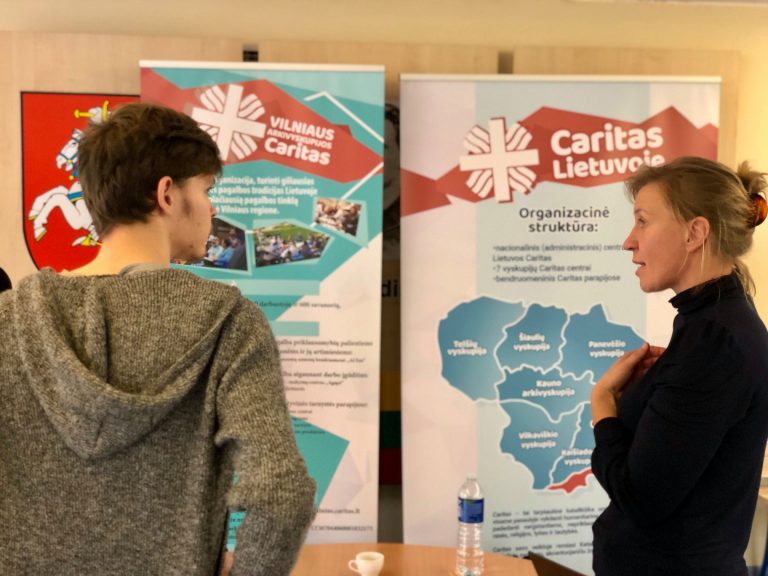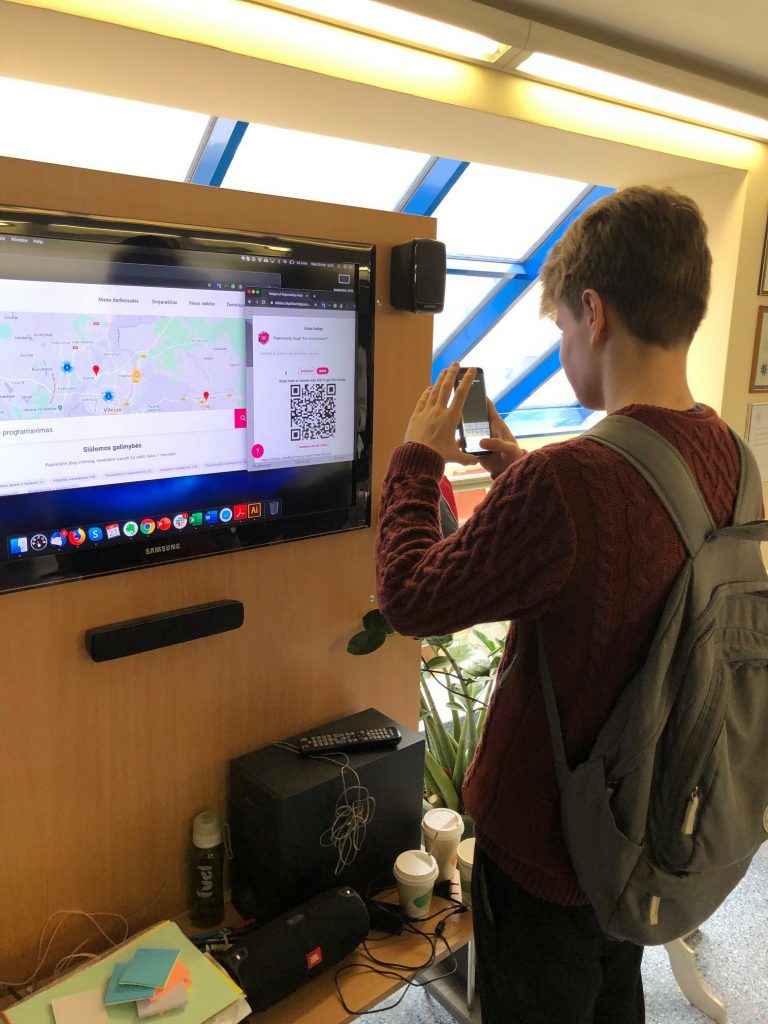Awero team
Volunteering: the spark for Open Badges in Vilnius
14 dec., 10:01
"What I saw was a network built with and for people, not a top-down bureaucracy but a real community."
Vidmantas Mitkus, head of the Youth and Non-Formal Education Department at Vilnius Municipality, recalls his first impression of the Cities of Learning Network with fondness.
It was this community, and the opportunity to bring good practices from the international youth work and non-formal learning sector, that spurred Vidmantas on to bring Cities of Learning to Lithuania's capital.
“We had been vacuumed into our own society,” Vidmantas explains. “We didn’t see anything outside our borders, even though we knew countries like Finland, Spain, and the Netherlands had useful practices. But we lacked the connections to integrate them into our city.”
Aligning policy with Open Badge recognition
The collaboration between Cities of Learning and the municipality was built on aligning the city’s priorities with what the platform could offer. Nerijus Kriaučiūnas, from NGO Awero which manages Vilnius City of Learning, worked closely with Vidmantas to identify how the initiative could support existing youth policies while also introducing innovation.
Through the process the team at Awero, supported by the municipality, consulted with young people to renew the city’s youth policy: “People told us they wanted badges not just from one organisation but from everywhere in the city,” Nerijus recalls. “We realised there should be a way to recognise learning across contexts - formal, non-formal, or even self-directed.”
“From the beginning, it was about showing tangible examples,” Nerijus explains. “We didn’t just talk about ideas, we implemented pilot initiatives to demonstrate how the platform could work.”

This demonstration of what’s possible with the Cities of Learning led to the creation of a specific platform dedicated to volunteering, and the municipality embedding open badge recognition in its youth policy. Plus, the city made it a commitment for volunteering organisations to provide badges to participants.
“We made it a policy that every volunteer is entitled to recognition,” Vidmantas explains. “And if an organisation is publicly funded, they must use digital platforms and badges to ensure this happens.”
To make this a reality, the municipality provided the resources and funding to its founded and funded institution which manages the volunteering platform in the city, setting the stage to make Vilnius City of Learning a success.
Open Badges unlock volunteering competences
The team believes this use of Open Badges unlocks extra benefits for young people who take part in volunteering.

“It’s not just about volunteering anymore; it’s about what you’ve gained from it,” explains Vidmantas. “The badges document competencies and qualities, making it easier for young people to demonstrate their experience to future employers. It’s a solution to the lack of digital tools in our education system.”
And, as well as documenting skills and achievements, Nerijus says when badges are issued consistently, they can also be a motivational tool.
“Badges become more than just certificates,” he says. “For some learners, they’re memories of what they’ve achieved. For others, they symbolise overcoming challenges and inspire them to seek out new opportunities.”
The impact is visible across Vilnius. “Every year, we see more badges issued, more organizations involved, and more events added to the system,” Vidmantas notes. “Young people are now able to show future employers their competencies, even if they don’t yet have formal work experience.”
Overcoming Challenges: Digital Transformation and Mindset Shifts
Despite its successes, getting organisations to embrace Vilnius City of Learning and start issuing badges has not been without its obstacles. Vidmantas notes the resistance to change within some sectors, particularly in traditional non-formal education institutions. “New things are scary,” he admits. “Digital tools can feel overwhelming, especially for organizations accustomed to older methodologies.”
Nerijus and the team at Cities of Learning however, have been on hand to offer support to organisations getting started with their badging journey. And, he believes taking small steps is the key to success: “Start small. Don’t try to understand every feature or build a complex system from day one. Just begin by issuing one badge consistently and build from there.”
Ultimately though, fostering a mindset open to innovation has been critical.
“You can’t adopt digital tools with an old mindset,” Vidmantas explains. “We need organisations to embrace new methodologies and perspectives first. Then, the transition to digital becomes much easier.”
International exchange to build education appeal
As part of the Cities of Learning network, Vilnius is not just transforming itself but also contributing to and benefiting from global collaboration. The city has drawn inspiration from international study visits, including to cities like Rotterdam and Lisbon, incorporating best practices into its own programmes.
“The beauty of Cities of Learning is the exchange of ideas,” Vidmantas says. “It’s not a one-way street. We bring back ideas from other cities and adapt them to our context.”
Looking ahead, both Vidmantas and Nerijus see plenty of potential for growth, with plans for expanding the use of badges beyond volunteering. This growth into other areas of non-formal learning, will in time create more structured learning pathways for young people.
“It’s not just about adopting new tools; it’s about making education more appealing and relevant to young people,” Nerijus explains.
And Nerijus believes the future growth of Vilnius City of Learning will motivate people to go further with their learning: “When badges are issued consistently, learners begin to see their growth over time. It’s not just about getting one badge; it’s about realising your potential and striving for more.”
Funded by the European Union. Views and opinions expressed are however those of the author(s) only and do not necessarily reflect those of the European Union or the European Education and Culture Executive Agency (EACEA). Neither the European Union nor EACEA can be held responsible for them.

Share:
Badgecraft găzduiește această platformă și o dezvoltă împreună cu organizații educaționale de top. Programul Uniunii Europene Erasmus+ a acordat cofinanțare pentru construirea primei versiuni a acestei platforme. Contactați support@badgecraft.eu.
Platformă
Schimbați într-o altă limbă:
